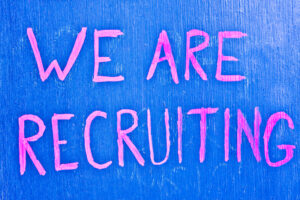 Here’s something to think about when you’re recruiting and hiring: Is it possible that the very best person to hire is the one who knows what not to do?
Here’s something to think about when you’re recruiting and hiring: Is it possible that the very best person to hire is the one who knows what not to do?I’ve hired people with varied skill sets over the years, but take it from me, this is not something I have ever screened for. That’s why I was intrigued by this story in The Wall Street Journal with the headline, Hiring Tip: Find the Person Who Knows What Not to Do.
The importance of knowing what not to do
Somewhat confused? That’s OK because I was too, but here’s the essence of what the story was trying to get at:
It’s easy to assume that star employees are the ones who can pick the best course of action when confronted with a business problem. But new research suggests there is a better predictor of performance: a person’s ability to identify the worst solution when given a range of choices.
That talent is evidence of “practical intelligence,” which includes knowing how to avoid pitfalls and potential crises, says Steven Stemler, a psychology professor at Wesleyan University and an author of a paper called “Knowing What NOT To Do Is a Critical Job Skill.”
This is a pretty fascinating concept, and it has to do with the notion of “situational judgment,” where employees are hired because of their ability to make smart choices from a series of scenarios where the right choice isn’t always simple or easy to figure out.
Finding people to keep you out of trouble
 That’s because, as Steven Stemler notes, there’s a big difference between understanding what the wrong thing to do is, and, being able to avoid doing it. Really, it’s not as easy to navigate as many people think.
That’s because, as Steven Stemler notes, there’s a big difference between understanding what the wrong thing to do is, and, being able to avoid doing it. Really, it’s not as easy to navigate as many people think.
As The Journal story notes:
People often think there is a linear continuum of best to worst options, says Mr. Stemler. But in real life, the best solutions vary depending on context, corporate culture and other factors, so the choice of a single solution on a test is not all that meaningful.
On the other hand, “across an industry, there seems to be clear consensus about what’s going to get you in trouble,” he said.”
How to improving your batting average
Here’s my take: This WSJ story makes it clear how terribly important it is to know exactly what skills you need when hiring for a specific job.
But, it seems incredibly simplistic to say that, and a little crazy too. What kind of recruiter or talent manager would hire someone without having a good sense of the skill set needed for someone to be successful?
Actually, this problem is more common than you think, and it’s one that drives many recruiters crazy.
The hiring manager — the actual decision maker in the hiring chain — sometimes fails to be completely clear on what is needed in the job, and this can leave the recruiter in a situation where they’re finding good candidates that keep getting rejected because they don’t have some unknown quality that the hiring manager hasn’t shared with anyone else — especially the recruiter.
Believe me, this happens a lot because I’ve seen it on many occasions.
Any TA professional knows this, but it’s always a crap shoot when you hire someone. Sometimes, the very best person who excelled in one job just doesn’t do the same thing in a very similar job in a different company. This is a reminder to get lots of people involved in the hiring and interviewing process, and to think long and hard about what qualities someone you hire need to have to be successful working for YOU.
The more you think about this, the better hires you’ll make. Of course, you will never, ever be perfect, but the more thoughtful you can be, the better your hiring batting average will be.
And THAT is something we all should be striving for.
Authors
John Hollon
John Hollon is managing editor at Fuel50, an AI Opportunity Marketplace solution that delivers internal talent mobility and workforce reskilling. You can download the research reports in their Global Talent Mobility Best Practice Research series at Fuel50.
Recruit Smarter
Weekly news and industry insights delivered straight to your inbox.





